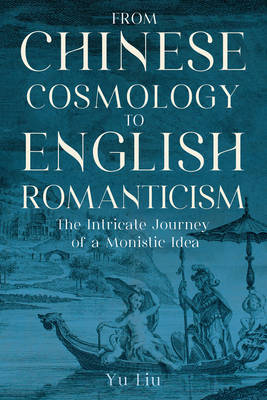
- Afhalen na 1 uur in een winkel met voorraad
- Gratis thuislevering in België vanaf € 30
- Ruim aanbod met 7 miljoen producten
- Afhalen na 1 uur in een winkel met voorraad
- Gratis thuislevering in België vanaf € 30
- Ruim aanbod met 7 miljoen producten
Omschrijving
A culturally sensitive and rewarding new understanding of the cross-cultural interaction between China and Europe
In this important new work author Yu Liu argues that, confined by a narrow English and European conceptual framework, scholars have so far obscured the radical innovation and revolutionary implication of Samuel Taylor Coleridge and William Wordsworth's monistic philosophy. Liu's innovative intellectual history traces the organic westward movement of the Chinese concept of tianren heyi, or humanity's unity with heaven. This monistic idea enters the European imaginary through Jesuit missionary Matteo Ricci's understanding of Chinese culture, travels through Spinoza's identification of God with nature, becomes ingrained in eighteenth-century English thought via the landscaping theory and practice of William Kent and Horace Walpole, and emerges in the poetry and thought of Coleridge and Wordsworth. In addition to presenting a significantly different reading of the two English poets, Liu contributes to scholarship about English literary history, history of European philosophy and religion, English garden history, and cross-cultural interactions between China and Europe in the sixteenth, seventeenth, and eighteenth centuries.
Specificaties
Betrokkenen
- Auteur(s):
- Uitgeverij:
Inhoud
- Aantal bladzijden:
- 264
- Taal:
- Engels
- Reeks:
Eigenschappen
- Productcode (EAN):
- 9781643363806
- Verschijningsdatum:
- 27/04/2023
- Uitvoering:
- Hardcover
- Formaat:
- Genaaid
- Afmetingen:
- 152 mm x 229 mm
- Gewicht:
- 566 g

Alleen bij Standaard Boekhandel
Beoordelingen
We publiceren alleen reviews die voldoen aan de voorwaarden voor reviews. Bekijk onze voorwaarden voor reviews.











